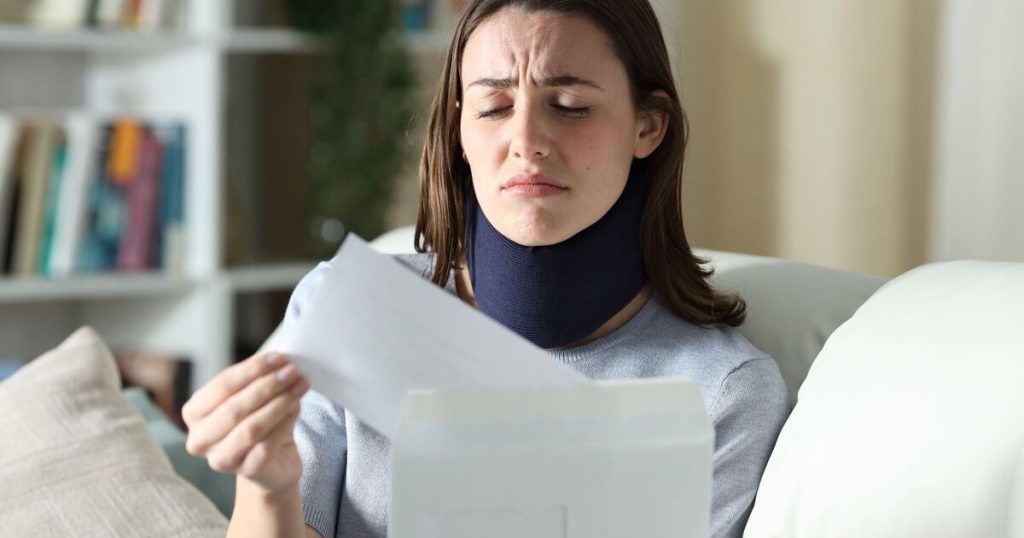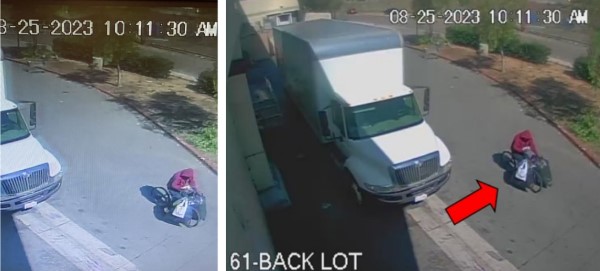

Major changes are set to hit the PIP system (Image: Getty Images)
Major changes to Personal Independence Payment (PIP) have been announced, following the introduction of stricter eligibility criteria. The alterations were first revealed last week, with further cuts to benefits being made by Rachel Reeves during her Spring Statement.
PIP is a disability benefit given to individuals who need help with daily tasks due to a mental or physical health condition or disability. PIP is split into two parts, and claimants may be eligible for payments for one or both of these components.
These are the daily living component and the mobility component.
The upcoming changes will affect the daily living component of PIP and the scoring system used to determine someone’s eligibility for this part. Most people must undergo an assessment to claim PIP, during which they are asked about their condition and their ability to perform tasks.
This assessment is carried out using a points system. To qualify for the standard rate of the daily living component of PIP, you need to score between eight and 11 points, reports the Mirror.
If you score 12 points or more, you are eligible for the higher daily living rate. However, under the proposed changes, from November 2026, you would also need a minimum of four points in at least one activity to receive the daily living component of PIP.
The Personal Independence Payment (PIP) has undergone changes that could affect the eligibility of some claimants. Those who score fewer points across a range of tasks will no longer be eligible for the daily living part of PIP, although the assessment for the mobility part remains unchanged.
For those with terminal illnesses, PIP is typically granted automatically without an assessment.
Benefits and Work, a leading benefits website, has published an updated PIP test online using the new eligibility criteria. This allows individuals to see if they would still qualify for the benefit under the new rules.
The criteria and points awarded can be found below to understand how it works:
READ MORE DWP set to confirm estimated number of PIP claimants affected by reforms
Preparing food
1a. Can prepare and cook a simple meal unaided. (0 points).
1b. Needs to use an aid or appliance to be able to either prepare or cook a simple meal. (2 points).
1c. Cannot cook a simple meal using a conventional cooker but is able to do so using a microwave. (2 points).
1d. Needs prompting to be able to either prepare or cook a simple meal. (2 points).
1e. Needs supervision or assistance to either prepare or cook a simple meal. (4 points).
1f. Cannot prepare and cook food. (8 points).
Taking nutrition
2a. Can take nutrition unaided. (0 points).
2b. Needs either – (i) to use an aid or appliance to take nutrition; or (ii) supervision to be able to take nutrition; or (iii) assistance to be able to cut up food. (2 points).
2c. Needs a therapeutic source to take nutrition. (2 points).
2d. Needs prompting to be able to take nutrition. (4 points).
2e. Assistance is required for managing a therapeutic source to take nutrition. (6 points).
2f. Unable to convey food and drink to their mouth without the help of another person. (10 points).
Managing therapy or monitoring a health condition.
3a. Either – (i) does not require medication or therapy or need to monitor a health condition; or (ii) can manage medication or therapy or monitor a health condition independently. (0 points).
3b. Requires any one or more of the following – (i) to use an aid or appliance to manage medication; (ii) supervision, prompting or assistance to manage medication; (iii) supervision, prompting or assistance to monitor a health condition. (1 point).
3c. Requires supervision, prompting or assistance to manage therapy that takes no more than 3.5 hours a week. (2 points).
3d. Requires supervision, prompting or assistance to manage therapy that takes more than 3.5 but no more than 7 hours a week. (4 points).
3e. Requires supervision, prompting or assistance to manage therapy that takes more than 7 but no more than 14 hours a week. (6 points).
3f. Requires supervision, prompting or assistance to manage therapy that takes more than 14 hours a week. (8 points).

The PIP point system will face major changes (Image: Getty Images)
Washing and bathing
4a. Can wash and bathe independently. (0 points).
4b. Needs to use an aid or appliance to be able to wash or bathe. (2 points).
4c. Needs supervision or prompting to be able to wash or bathe. (2 points).
4d. Assistance is required for washing either their hair or body below the waist. (2 points).
4e. Assistance is needed to get in or out of a bath or shower. (3 points).
4f. Assistance is necessary to wash their body between the shoulders and waist. (4 points).
4g. Unable to wash and bathe at all, requiring another person to wash their entire body. (8 points).
Managing toilet needs or incontinence
5a. Can manage toilet needs or incontinence unaided. (0 points).
5b. Needs an aid or appliance to manage toilet needs or incontinence. (2 points).
5c. Requires supervision or prompting to manage toilet needs. (2 points).
5d. Assistance is needed to manage toilet needs. (4 points).
5e. Assistance is required to manage incontinence of either bladder or bowel. (6 points).
5f. Assistance is needed to manage incontinence of both bladder and bowel. (8 points)
Dressing and undressing
6a. Can dress and undress unaided.(0 points).
6b. Needs an aid or appliance to dress or undress. (2 points).
6c. Either – (i) prompting is required to dress, undress or determine appropriate circumstances for remaining clothed; or (ii) prompting or assistance is needed to select appropriate clothing. (2 points).
6d. Assistance is required to dress or undress their lower body. (2 points).
6e. Assistance is needed to dress or undress their upper body. (4 points).
6f. Cannot dress or undress at all. (8 points).
Communicating
7a. Can express and understand verbal information unaided. (0 points).
7b. Needs to use an aid or appliance to be able to speak or hear. (2 points).
7c. Needs communication support to be able to express or understand complex verbal information. (4 points).
7d. Needs communication support to be able to express or understand basic verbal information. (8 points).
7e. Cannot express or understand verbal information at all even with communication support. (12 points).
Reading and understanding signs, symbols and words.
8a. Can read and understand basic and complex written information either unaided or using spectacles or contact lenses. (0 points).
8b. Needs to use an aid or appliance, other than spectacles or contact lenses, to be able to read or understand either basic or complex written information. (2 points).
8c. Needs prompting to be able to read or understand complex written information. (2 points).
8d. Needs prompting to be able to read or understand basic written information. (4 points).
8e. Cannot read or understand signs, symbols or words at all. (8 points).
Engaging with other people face to face
9a. Can engage with other people unaided. (0 points).
9b. Needs prompting to be able to engage with other people. (2 points).
9c. Needs social support to be able to engage with other people. (4 points).
9d. The inability to interact with others due to such interaction causing either – (i) overwhelming psychological distress to the claimant; or (ii) the claimant displaying behaviour which could result in a significant risk of harm to themselves or another person. (8 points).
Budgeting Decisions
10a. Can manage complex budgeting decisions independently. (0 points).
10b. Requires prompting or assistance to make complex budgeting decisions. (2 points).
10c. Requires prompting or assistance to make simple budgeting decisions. (4 points).
10d. Unable to make any budgeting decisions at all. (6 points).
Mobility
Planning and Following Journeys.
11a. Can plan and follow the route of a journey independently. (0 points).
11b. Needs prompting to undertake any journey to avoid overwhelming psychological distress to the claimant. (4 points).
11c. Unable to plan the route of a journey. (8 points).
11d. Cannot follow the route of an unfamiliar journey without another person, assistance dog or orientation aid. (10 points).
11e. Cannot undertake any journey because it would cause overwhelming psychological distress to the claimant. (10 points).
11f. Cannot follow the route of a familiar journey without another person, an assistance dog or an orientation aid. (12 points).
Moving Around
12a. Can stand and then move more than 200 metres, either aided or unaided.
(0 points).
12b. The ability to stand and then move a distance between 50 and 200 metres, either with or without assistance, earns 4 points.
12c. If one can stand and then move unaided a distance of more than 20 metres but no more than 50 metres, they receive 8 points.
12d. Standing and then moving using an aid or appliance for a distance of more than 20 metres but no more than 50 metres is worth 10 points.
12e. The ability to stand and then move a distance of more than 1 metre but no more than 20 metres, either with or without assistance, earns 12 points.
12f. If one cannot, either with or without assistance, (i) stand; or (ii) move more than 1 metre, they receive 12 points.







